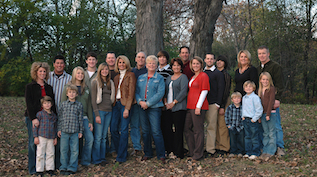Successful Succession: Inspiring and Preparing a New Generation of Charitable Leaders
Posted on March 26, 2005 by Virginia M. Esposito

Family philanthropy structures, leaders, and goals are constantly evolving, just like the families they represent. The change that comes over time is to be anticipated, managed, and, if possible, embraced as an opportunity for renewal. The inevitable changes and transitions that come to family giving programs are too often spoken of in negative terms. As relieved as we are to make it from one challenge to the next, change is not something to be simply weathered.
Leaders will leave, and new ones will emerge. Priorities will shift. Families will move. Stock values will rise and fall. It’s all to be expected. Change comes with the territory. How your family initiates, manages, and responds to that change will determine the course of your giving and reveal your true legacy.






We’re here to equip you with the tools you need to make a meaningful impact. Contact NCFP for support.
Keep up with trends in family philanthropy. Subscribe to our newsletter.
Gain access to personalized support and a network of peers. Join our community!

